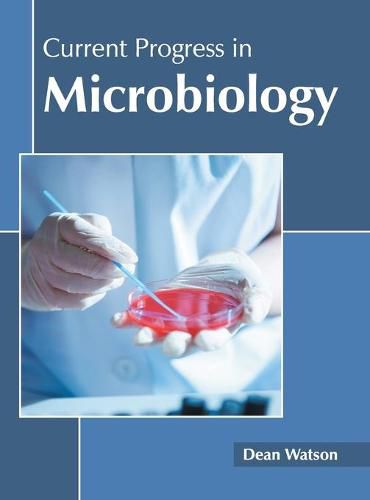Readings Newsletter
Become a Readings Member to make your shopping experience even easier.
Sign in or sign up for free!
You’re not far away from qualifying for FREE standard shipping within Australia
You’ve qualified for FREE standard shipping within Australia
The cart is loading…






This title is printed to order. This book may have been self-published. If so, we cannot guarantee the quality of the content. In the main most books will have gone through the editing process however some may not. We therefore suggest that you be aware of this before ordering this book. If in doubt check either the author or publisher’s details as we are unable to accept any returns unless they are faulty. Please contact us if you have any questions.
Microbiology is the science concerned with the study of microorganisms, whether acellular, unicellular or multicellular. Unicellular organisms fall within the categories of prokaryotes and eukaryotes. Prokaryotes include bacteria and archaea, while eukaryotes include unicellular algae, fungi and protozoa. The primary candidates for acellular life are viruses. All species of plants, animals, algae and fungi are multicellular organisms. Some of the various sub-disciplines of microbiology are parasitology, bacteriology, virology and mycology. While many microbes are causative agents of various human diseases, many microorganisms have potential for human benefit. They are useful in industrial fermentation, particularly in the production of vinegar, alcohol and dairy products. They are also utilized for antibiotic production. Microorganisms are also used for the biosynthesis of cellulose, xanthan, cyanophycin, alginate, levan, etc. The ability of microorganisms to degrade toxic waste is of utmost importance for microbial biodegradation or bioremediation of agricultural, domestic and industrial wastes, and subsurface pollution in sediments, soils and marine environments. This book brings forth some of the most innovative concepts and elucidates the unexplored aspects of microbiology. Most of the topics introduced herein cover new techniques and applications of this field. It is a complete source of knowledge on the present status of this important field.
$9.00 standard shipping within Australia
FREE standard shipping within Australia for orders over $100.00
Express & International shipping calculated at checkout
This title is printed to order. This book may have been self-published. If so, we cannot guarantee the quality of the content. In the main most books will have gone through the editing process however some may not. We therefore suggest that you be aware of this before ordering this book. If in doubt check either the author or publisher’s details as we are unable to accept any returns unless they are faulty. Please contact us if you have any questions.
Microbiology is the science concerned with the study of microorganisms, whether acellular, unicellular or multicellular. Unicellular organisms fall within the categories of prokaryotes and eukaryotes. Prokaryotes include bacteria and archaea, while eukaryotes include unicellular algae, fungi and protozoa. The primary candidates for acellular life are viruses. All species of plants, animals, algae and fungi are multicellular organisms. Some of the various sub-disciplines of microbiology are parasitology, bacteriology, virology and mycology. While many microbes are causative agents of various human diseases, many microorganisms have potential for human benefit. They are useful in industrial fermentation, particularly in the production of vinegar, alcohol and dairy products. They are also utilized for antibiotic production. Microorganisms are also used for the biosynthesis of cellulose, xanthan, cyanophycin, alginate, levan, etc. The ability of microorganisms to degrade toxic waste is of utmost importance for microbial biodegradation or bioremediation of agricultural, domestic and industrial wastes, and subsurface pollution in sediments, soils and marine environments. This book brings forth some of the most innovative concepts and elucidates the unexplored aspects of microbiology. Most of the topics introduced herein cover new techniques and applications of this field. It is a complete source of knowledge on the present status of this important field.